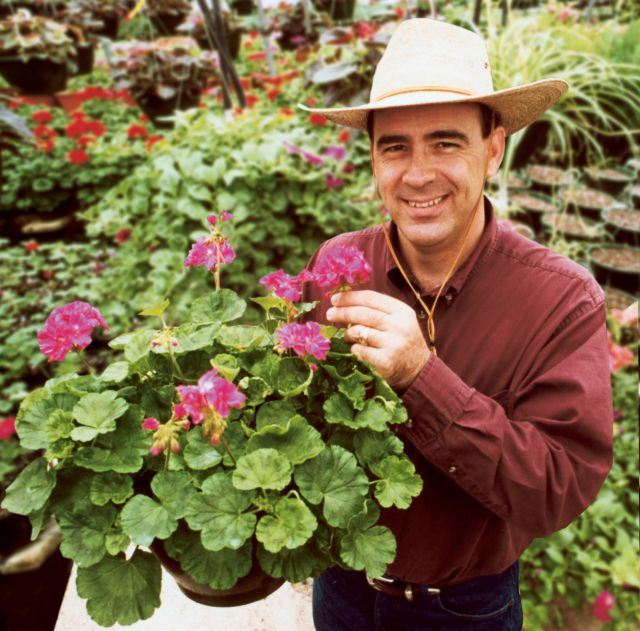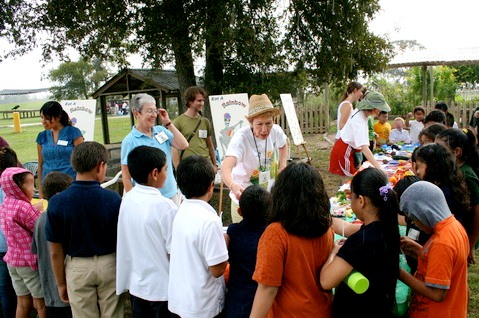- La Feria Community Holds Succesful Business Mixer Event
- Little Nashville to Take Place in Downtown Mercedes
- Lions Basketball Captures District Gold
- La Feria ISD Students Compete in Regional Chess Tournament
- Lions End First Half of 32-4A on a High Note
- La Feria ISD Held Another Successful Parent Conference
- Strong Appearance for Lions at Hidalgo Power Meet
- LFECHS Students Get to Meet Local Actress
- Students Participate in Marine Biology Camp
- Two LFECHS Students Qualify for All-State Band
The Positive Effects Of Gardening On Mental Health
- Updated: May 14, 2022
Experts explain the many psychological benefits of plants and gardening

Written by Paul Schattenberg
Getting outdoors and gardening can do more than just provide some physical activity and produce food for the table; it can be beneficial to the mind as well.
Although there are many functional benefits of gardening and the inherent ways in which plants improve the quality of life, Texas A&M AgriLife experts say a particularly important aspect is how plants enhance mental health and a person’s overall outlook.
“As many people already knew and others discovered during the pandemic, plant-related hobbies like gardening offer an opportunity to enjoy nature and give a person a more positive outlook on life,” said Charles Hall, Ph.D., professor and Ellison Chair in International Floriculture in the Department of Horticultural Sciences of the College of Agriculture and Life Sciences, Bryan-College Station.
Hall has done extensive research on how plants and gardening can improve both physical and mental health.
Research by Hall, presented in an article published in the Journal of Environmental Horticulture, outlines the numerous psychological benefits of plants and the activity of gardening in a variety of categories. These benefits include:
Anxiety and stress reduction.
Attention deficit recovery.
Decreased depression.
Enhanced memory retention.
Improved happiness and life satisfaction.
Mitigation of PTSD.
Increased creativity, productivity and attention.
Reduced effects of dementia.
Enhanced self-esteem.
Hall said the pandemic was partly responsible for an increased interest in gardening as more people were becoming involved in at-home activities.
He said being in naturalized settings and engaging in activities like gardening have a positive impact on people’s feelings of vitality and energy.
“Consequently, this has a significant positive effect on a person’s overall mental health,” Hall said.
He also noted the activities of gardening and plant care help distract the mind and put it into a quieter and more relaxed state.
“When young gardeners have the experience of planting and caring for something from seed to harvest, they get a sense of accomplishment, pride and ownership. It’s a real esteem-builder for them.”
— Randy Seagraves, Junior Master Gardener Program

Gardening programs benefit mental health of all ages
Jayla Fry, Texas A&M AgriLife Extension Service program coordinator for the agency’s Texas Master Gardener volunteer effort, said almost every day she sees gardening’s calming effect and ability to improve a person’s outlook.
“Through the Department of Horticultural Sciences, AgriLife Extension oversees thousands of adult Master Gardener volunteers throughout the state,” she said. “These Master Gardeners support agency horticultural programs and reach tens of thousands of people annually through their educational and community beautification efforts. These volunteers can attest to the positive psychological benefits gardening provides for them — and for those they work with in the community.”
Further commenting on the intersection of plants, gardens and mental health was Joseph Johnson, manager of The Gardens at Texas A&M University, Bryan-College Station.
“We think of The Gardens area as the Central Park for the Texas A&M University campus,” he said.
The Gardens is a 27-acre public teaching garden on campus that serves as a living classroom for educational, inspirational and recreational experiences. Primarily a peaceful retreat away from the activity of campus and the surrounding community, students and visitors alike visit to enjoy and learn from the nature that surrounds them.
“The Gardens helps enrich their lives by connecting them with the living world of horticulture,” Johnson said. “Students and community members can more easily relax being in such a beautiful and tranquil place. It makes them feel more peaceful in their minds and souls.”
Growing well-adjusted kids through gardening
Hall said when young people, particularly students, have a view of green spaces during school, they exhibit significantly better performance on attention tests and stress recovery.
“They get even greater psychological benefits if there’s a classroom or teaching garden on their campus,” he said. “These gardens provide opportunities for young people to improve their social, physical, psychological, cognitive, environmental and spiritual well-being.”
Randy Seagraves, AgriLife Extension specialist and curriculum coordinator for its Junior Master Gardener program in the Department of Horticultural Sciences, said it is common to see a child’s demeanor and attitude improve as soon as he or she steps into a garden.
“We see them slow down, pause and smile,” he said. “For many of these kids, being a part of a school garden project will be their very first garden connection. When young gardeners have the experience of planting and caring for something from seed to harvest, they get a sense of accomplishment, pride and ownership. It’s a real esteem-builder for them.”
Hall said in addition to improved concentration and attention, children in schools with classroom gardens have been shown to have fewer instances of interpersonal conflict and bullying.
“Gardening is conducive to generating a positive learning environment, reducing children’s tendency towards distraction and helping them better concentrate on schoolwork,” he said. “Children engaged in classroom gardens get to be outside, be physically active and work together toward a common goal. Maybe most importantly, they also get to understand how patience and persistence are needed for them to literally see the fruits of their labor.”
Social and mindfulness benefits of gardening
Hall said another psychological benefit of gardening is its ability to bring people together socially, especially in the case of a community garden.
“Neighborhoods with a community garden are often more friendly and inviting,” he said. “And a community garden helps break down certain social barriers in that you will often see people of different backgrounds, ethnicities and economic levels collaborating on them. This sense of community is really the glue that makes a neighborhood special and allows people a chance to really get to know and understand one another.”
Miquela Smith, AgriLife Extension program specialist-health, Lubbock, with AgriLife Extension’s Family and Community Health unit, said studies show people at lower economic levels experience greater average net benefits from home gardening compared to medium- and high-income respondents.
“One reason is likely that low-income families often live in food deserts and experience greater food insecurity from limited access to fresh produce,” she said. “Home or community gardening allows them to grow their own nutritious food, which provides some measure of control over their food security and has a positive impact on their physical and mental well-being.”
Smith also noted gardening is one of the ways people can improve their mindfulness as a means of supporting their mental health.
“Gardening is an excellent activity for practicing mindfulness, which is beneficial to overall well-being,” she said. “The ability to use our hands, coupled with being outside, makes it less likely to be distracted by phones or other technology. This helps you focus and distract your mind from those things that would worry you.”
She also reiterated Hall’s point that gardening can also be a family or community activity that promotes togetherness and provides the opportunity for making personal connections.
“This ability to make and sustain personal connections is something that is beneficial to all people, regardless of demographics,” she said.





